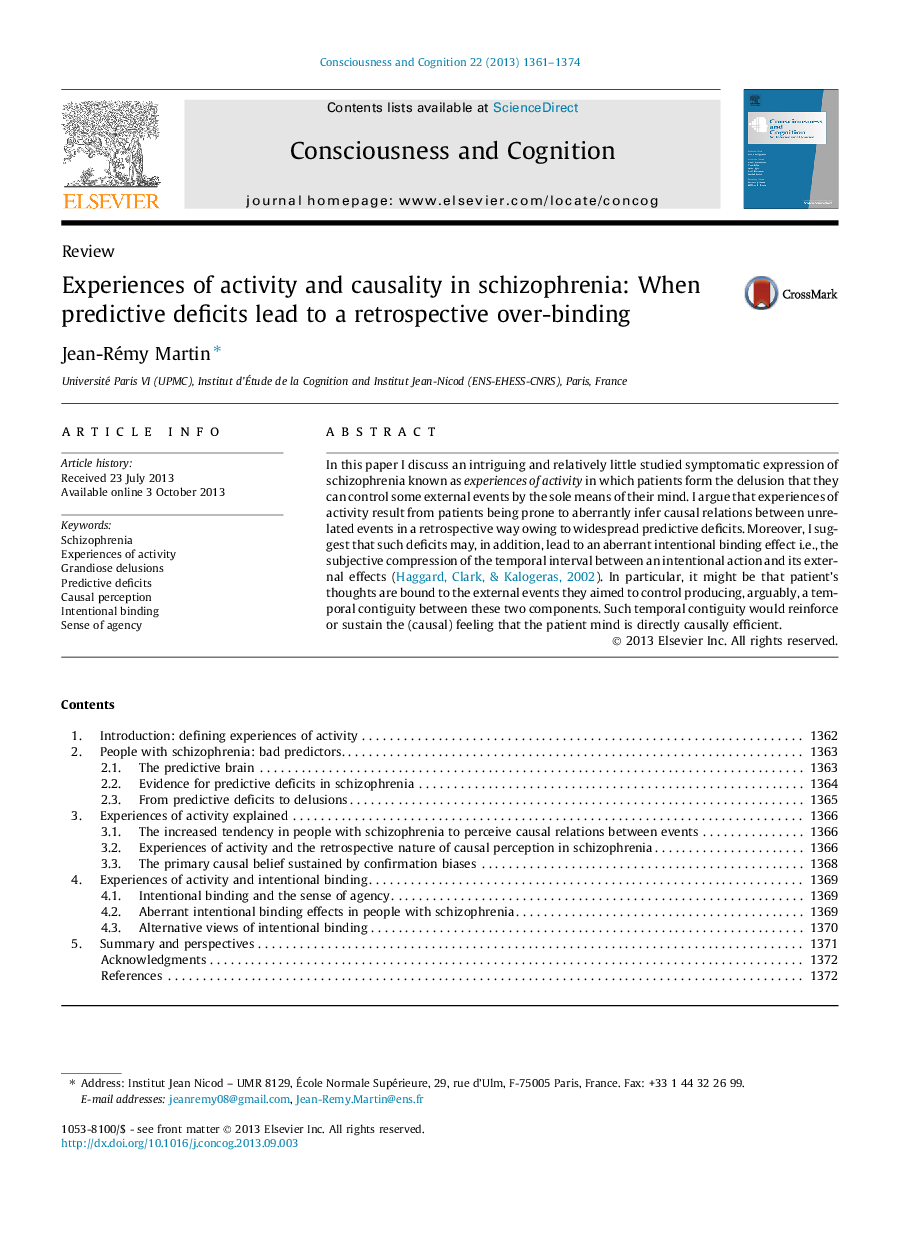| Article ID | Journal | Published Year | Pages | File Type |
|---|---|---|---|---|
| 10458532 | Consciousness and Cognition | 2013 | 14 Pages |
Abstract
In this paper I discuss an intriguing and relatively little studied symptomatic expression of schizophrenia known as experiences of activity in which patients form the delusion that they can control some external events by the sole means of their mind. I argue that experiences of activity result from patients being prone to aberrantly infer causal relations between unrelated events in a retrospective way owing to widespread predictive deficits. Moreover, I suggest that such deficits may, in addition, lead to an aberrant intentional binding effect i.e., the subjective compression of the temporal interval between an intentional action and its external effects (Haggard et al., 2002a, Haggard et al., 2002b). In particular, it might be that patient's thoughts are bound to the external events they aimed to control producing, arguably, a temporal contiguity between these two components. Such temporal contiguity would reinforce or sustain the (causal) feeling that the patient mind is directly causally efficient.
Related Topics
Life Sciences
Neuroscience
Cognitive Neuroscience
Authors
Jean-Rémy Martin,
